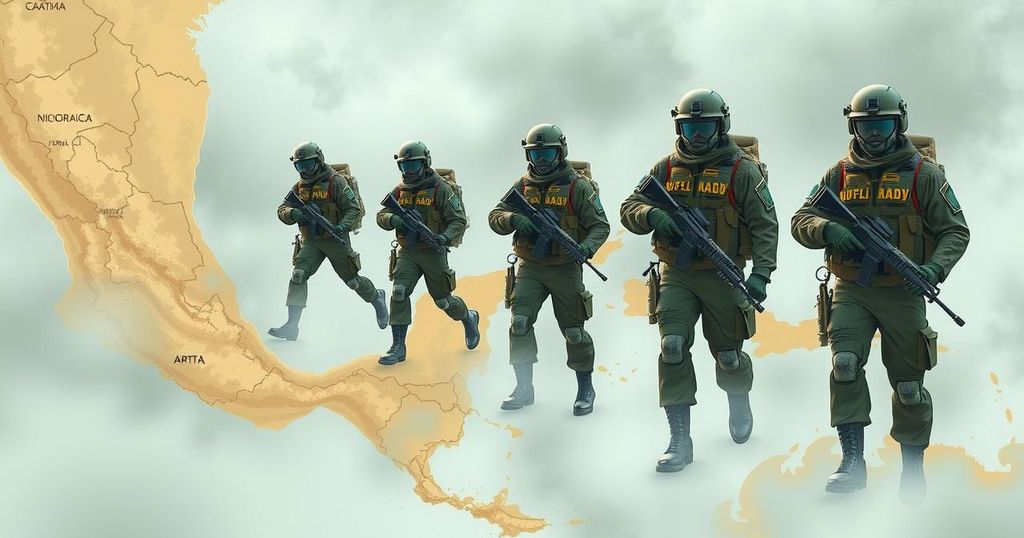Nicolás Maduro announced preparations for armed conflict with Cuba and Nicaragua in response to calls for international intervention by former Colombian presidents. His declarations come as he navigates legitimacy issues following his controversial re-election, amid increased military displays and ongoing repression against dissenting political figures, reflecting a radicalized regime in crisis.
On the inaugural day of his third term, Nicolás Maduro proclaimed that he is organizing an armed response alongside Cuba and Nicaragua against potential foreign interventions in Venezuela. Stating, “We are preparing ourselves together with Cuba and Nicaragua… if one day we have to take up arms and defend the right to peace and sovereignty, we will fight in an armed struggle and win again,” Maduro reacted defiantly to former Colombian presidents Álvaro Uribe and Iván Duque’s recent calls for international military action to facilitate a transition to democracy in Venezuela.
Maduro’s declaration on January 10 represents a critical juncture in the ongoing Venezuelan crisis, as he was sworn in for a third six-year term amidst claims of election fraud. Contrarily, evidence from opposition sources suggests that Edmundo González Urrutia was the legitimate winner. The Bolivarian regime, now facing heightened legitimacy challenges, has become increasingly radicalized and paranoid about alleged conspiracies aimed at its downfall.
In a show of loyalty, the National Armed Forces have publicly pledged support for Maduro amid what he describes as a “psychological war” against him, further asserting the need for military readiness in the face of external threats. Concurrently, the regime continues to suppress dissent, as evidenced by the over 75 arrests of political figures executed in early 2025, which the government justifies by alleging terrorist threats from opposition factions. Legislation such as the Simón Bolívar Law, recently enacted by Maduro’s parliament, facilitates harsh penalties against perceived threats to national security, heightening the climate of repression within the country.
Nicolás Maduro’s government has consistently faced domestic and international pressures regarding its legitimacy and governance. Former Colombian leaders have advocated for international interventions to restore democracy in Venezuela, prompting strong reactions from Maduro. The Bolivarian regime, established by Hugo Chávez and continued by Maduro, emphasizes its revolutionary ideology while contending with economic turmoil and sociopolitical unrest, leading to increased authoritarian measures. The context of Maduro’s recent statements reflects ongoing tensions within a framework characterized by alleged conspiracies against his administration and the historical Latin American relationships with Cuba and Nicaragua.
In summary, Nicolás Maduro’s assertion of readiness to engage in armed conflict alongside Cuba and Nicaragua highlights the increasing militancy and paranoia of his regime in response to international calls for intervention. His government faces substantial challenges rooted in perceived illegitimacy and is responding with military displays and severe crackdowns on political dissent. This situation signifies a tense and precarious moment in Venezuelan politics, with potential implications for regional stability.
Original Source: english.elpais.com






